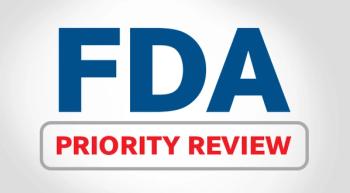
The Food and Drug Administration granted a priority review to Keytruda (pembrolizumab) in combination with Inlyta (axitinib) as a frontline treatment for advanced renal cell carcinoma.

The Food and Drug Administration granted a priority review to Keytruda (pembrolizumab) in combination with Inlyta (axitinib) as a frontline treatment for advanced renal cell carcinoma.

The Food and Drug Administration granted a priority review to Bavencio (avelumab) in combination with Inlyta (axitinib) to treat patients with advanced renal cell carcinoma (RCC).

Meeting combined exercise guidelines improved quality of life in kidney cancer survivors; however, few individuals reported that they actually follow such guidelines.

Yervoy plus Opdivo is a good combination for many patients with kidney cancer, though some individuals should steer clear of the regimen.

Certain factors – such as diastolic blood pressure and fasting insulin – were found to be associated with renal cell carcinoma.

People who have experienced high exposures to gasoline might be at an increased risk for kidney cancer, according to recent research.

Treatment side effects are typically manageable for patients with metastatic kidney cancer, but patients must have open communication with their health care team about them.

A recent meta-analysis has found no noticeable difference in immunotherapy’s efficacy based on patient sex.

The phase 3 TIVO-3 trial – designed to evaluate the efficacy of Fotivda in patients with renal cell carcinoma – met its primary endpoint of improved progression-free survival.

We've got a sneak peek at what’s inside our Fall 2018 issue.

Checkpoint inhibitors are moving into the treatment realm of renal cell carcinoma; however, questions still remain.

Many patients with renal cell carcinoma, the most common type of kidney cancer, experience high levels of distress, according to study findings published in BJU International.

Targeted drugs are controversial in early-stage kidney cancer, but play a more important role in treating advanced disease.

More than 20 percent of patients with non–clear cell renal cell carcinoma (RCC) had a germline mutation, of which half had the potential to direct systemic therapy.

Experts at Roswell Park Comprehensive Cancer Center discovered a way to assess if a kidney tumor is benign or malignant, potentially sparing many from having to undergo surgery.

The National Comprehensive Cancer Network updated its Clinical Practice Guidelines to add two new options for the frontline treatment of patients with kidney cancer.

Immunotherapy pioneers James P. Allison and Dr. Tasuku Honjo have won the 2018 Nobel Prize in Physiology or Medicine for their research that eventually led to the use of immune checkpoint inhibitors to treat cancer.

PD-1 and PD-L1 inhibitors are generally well-tolerated, so most patients face little or no issues with the drugs. However, there are still some things to look out for.

Immunotherapy is making landmark change in the treatment of patients with genitourinary (GU) cancers, with bladder cancer being the pioneer in the field, having five FDA-approved checkpoint inhibitors. But kidney cancer is not far behind, with a breakthrough therapy designation granted for a Keytruda (pembrolizumab) combination this past January.

The Food and Drug Administration (FDA) approved the immunotherapy combination of Yervoy (ipilimumab) plus Opdivo (nivolumab) to treat patients with intermediate- or poor-risk advanced renal cell carcinoma in the frontline setting.

After a recent FDA approval for an additional dosing schedule option for Opdivo, patients must be educated on the potential side effects that may occur between prolonged visits.



